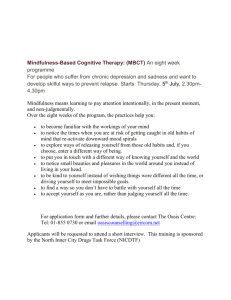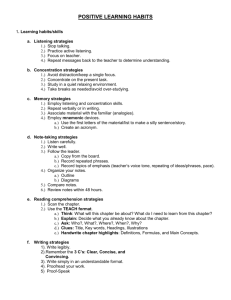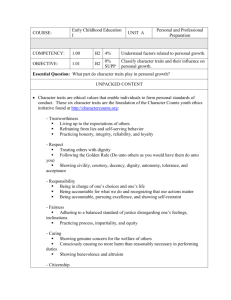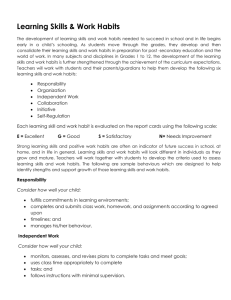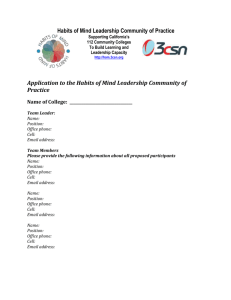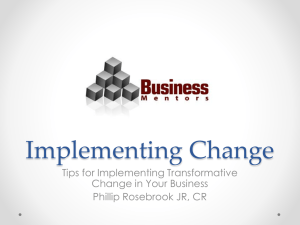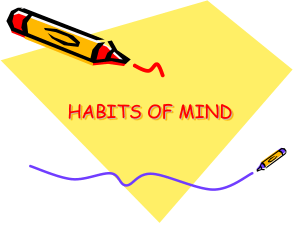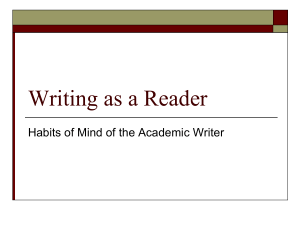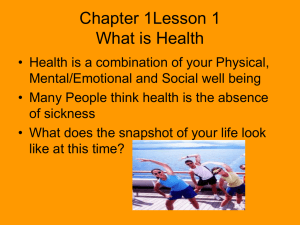Fostering Productive Habits of Mind
advertisement
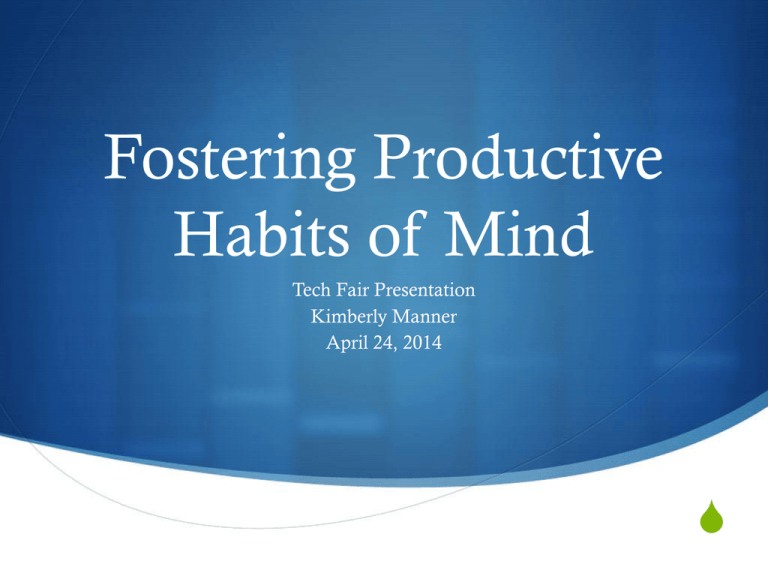
Fostering Productive Habits of Mind Tech Fair Presentation Kimberly Manner April 24, 2014 S Outcomes for the Workshop S Articulate the 16 Habits of Mind and how we use them within the context of our daily interactions with students. S Identify 1-3 key Habits of Mind that are most important to our work with students. S Identify one practice that can be implemented immediately. Habits of Mind Inform Behavior S A habit is an “acquired predisposition to respond in particular ways.” S Arthur Costa and Bena Kallick identified 16 “problem solving, life related skills, necessary to effectively operate in society and promote strategic reasoning, insightfulness, perseverance, creativity and craftsmanship.” S In other words…these are the strategies we subconsciously use to help us overcome challenges. Habits of Mind in Action http://youtu.be/VrSUe_m19FY 16 Habits of Mind SPersist SThink and communicate with SManage impulsivity clarity and precision SGather data through all senses SCreate, imagine, and innovate SRespond with wonderment and awe SListen with understanding and empathy SThink flexibly SThink about your thinking (Metacognition) SStrive for accuracy SQuestion and pose problems SApply past knowledge to new situation STake responsible risks SFind humor SThink interdependently SRemain open to continuous learning Circles of Influence Role: Faculty Member S Self S Which habits of mind do I already practice? S Which ones need further development? S Are there any I tend to abandon in moments of crisis? Circles of Influence Role: Faculty Member S Classroom Environment S How can I structure the learning environment to foster positive habits of mind? S S S Strength-based teaching Performance orientation vs. growth orientation Focus on development toward mastery, not on deficits (feedback vs. grading) S Initial assignment one that they will succeed at S Provide opportunities for students to take responsible risks and demonstrate mastery S S Inquiry-based assignments Students develop expertise and teach each other in small groups or pairs Circles of Influence Role: Faculty Member S Course Materials and Delivery S Revise course materials to address affective domain explicitly S Assign reading and writing around habits of mind S Require metacognitive assignments S Reflective essays S Journals S Exam questions S Incorporate teaching strategies that implicitly teach HoM (Reading Apprenticeship, FELI) Think/Pair/Share S Think about which circle you want to influence. What is one specific way you can foster productive habits of mind? What obstacles or challenges do you face? What resources can you use to overcome these challenges? S Find a partner. Share your ideas with each other. Can you think of additional resources your partner could tap into to effect the desired change? Resources S 3 CSN Community of Practice http://3csn.org/completion- initiative/habits-of-mind/ S Achieving the Dream www.achievingthedream.org S Carnegie Foundation, “Productive Persistence” http://www.carnegiefoundation.org/productive-persistence S Community College of Baltimore County, Maryland. “Culturally Responsive Teaching.” S Downing, Skip. On Course: Strategies for Creating Success in College and in Life. S Dweck, Carol. Mindset: The New Psychology of Success.

